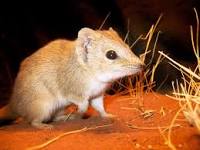
This small desert animal is an insectivorous and an endangered species as it is hunted by jackalsAs the case is with most burrowing mammals the Golden Mole goes underground to escape the excess heat from the sun. The fauna in Tanami Desert are the Rufous Hare Wallaby Bilby and The Mulgara.

Animals and weeds n land use n conservation estate.
Animals in the tanami desert. The fauna in Tanami Desert are the Rufous Hare Wallaby Bilby and The Mulgara. Rest of the in-depth answer is here. People also ask what type of desert is the Tanami.
The Tanami Desert is a desert in northern Australia situated in the Northern Territory and Western Australia. Australian Desert Animals 1 The Bilby. The pretty and delicate bilby once lived across most of the Australian inland deserts.
Today its range is a lot more restricted due to the usual environmental problems that we humans cause. Only small fragmented populations survive in parts of the Tanami the Gibson and the Great Sandy deserts. There are many endangered species in Tanami Desert.
The fauna in Tanami Desert are the Rufous Hare Wallaby Bilby and The Mulgara. Did you know that in the 90s these animals were very common in Tanami Desert. There are several types of plants and animals in the Tanami desert.
Some native plants include Sturts Desert Roses poached egg daisies and honey grevillas. There are several types of plants and animals in the Tanami desert. Some native plants include Sturts Desert Roses poached egg daisies and honey grevillas.
Some animals include mulgaras bilbies. The Tanami Desert is a very important biological area in Australia and is a refuge for many endangered species both plants and wildlife. The best known were the rufous hare-wallaby mala the bilby and the mulgara.
In the nineties these species were still fairly common in the Tanami Desert more than anywhere else in Australia. The Tanami Desert is a dry isolated fairly flat stretch of land that covers more than 71000 square miles in the Northern Territory of Australia transversed by a long dirt road known as the Tanami Track. Although it has a reputation as a hostile natural environment the Tanami does sustain a significant amount of plant and animal life.
In der Tanami kommen verschiedene kleine bis mittelgroße Säugetiere vor darunter Schwarzschwanz-Beutelmarder Dasyurus geoffroii Golden Bandicoot Isoodon auratus Bürstenschwanz-Rattenkänguru Bettongia penicillata und die Dickschwanzrattenart Zyzomys pedunculatus. Being the most extremely venomous snake the inland taipan is also among dangerous desert animals as well. The good thing is they tend to be shy and reclusive so they only strike when provoked mishandled or prevented from escaping.
Inland Taipan does display threat before they strike you wont be pleased if you choose to ignore the signs. The Tanami Desert is an area of interest to scientists as it is rich in fauna and possibly forms a last refuge for a number of small Australian mammals feared extinct. Including the desert bandicoot the burrowing bettong and the golden bandicoot.
This area is a bird watchers paradise where over 73 varieties of waterbirds have been recorded. Permits can be obtained for the camps at Paruku IPA offices in Mulan and Billiluna. At Stretch Lagoon 18 kilometres south of Billiluna at the top of the Canning Stock Route is another great camp.
Foxes were not recorded during a 19811983 fauna survey of the Tanami Desert and Gibson 1986 listed them as rare but noted that a number of fox sightings had been made at localities in the vicinity of the Granites and Rabbit Flat in the period 19601980. Our survey found fox sign frequently on random plots and fixed transects in the south and extending to the Tennant Creek latitude. This small desert animal is an insectivorous and an endangered species as it is hunted by jackalsAs the case is with most burrowing mammals the Golden Mole goes underground to escape the excess heat from the sun.
The Coyote is a canid that traces its origin in North America. It is small in size and its family is close to that of the. The Gibson Desert lies to the South and the Tanami Desert lies to the East of the Great Sandy Desert.
The desert is greatly dominated by spinifex which appeals the Greater bilby. Other animals in the region include feral camels dingos goannas including the large. Animals and weeds n land use n conservation estate.
Climate The climate of the Tanami bioregion is semiarid with a monsoonal influence. Rainfall is summer dominant and the spatially averaged median 18902005 rainfall is 298 mm April to March rainfall year. Figure 2 Decile rainfall for the period 19911992 to 20042005.